Zofia Rydet's 20-year task of photographing every household in Poland goes on show in London
Zofia Rydet took 20,000 images over 20 years for the mammoth sociological project
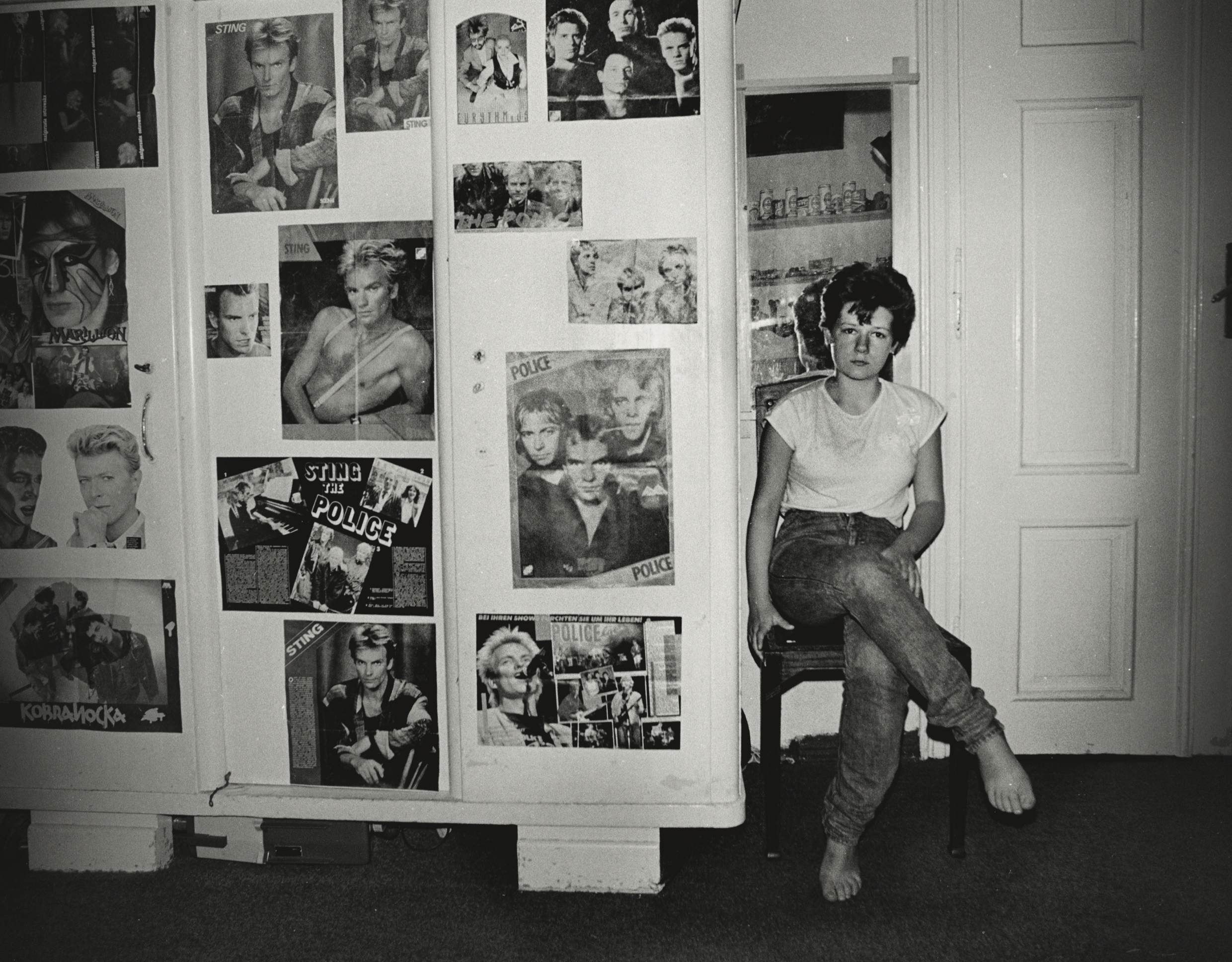
In 1978, Zofia Rydet embarked on a colossal task: photographing the inside of every household in Poland. The 67 year-old had already produced a major body of work with Little Man – a study on children, published as a book in 1965 – while her series of photomontages, The World of Feeling and Imagination, had been in development since 1975. What became Sociological Record would ultimately take Rydet into the 1990s, culminating in more than 20,000 images, only a fraction of which were ever printed (by the series’ end her efforts were solely focused on making sure there was a record, as opposed to sharing it).
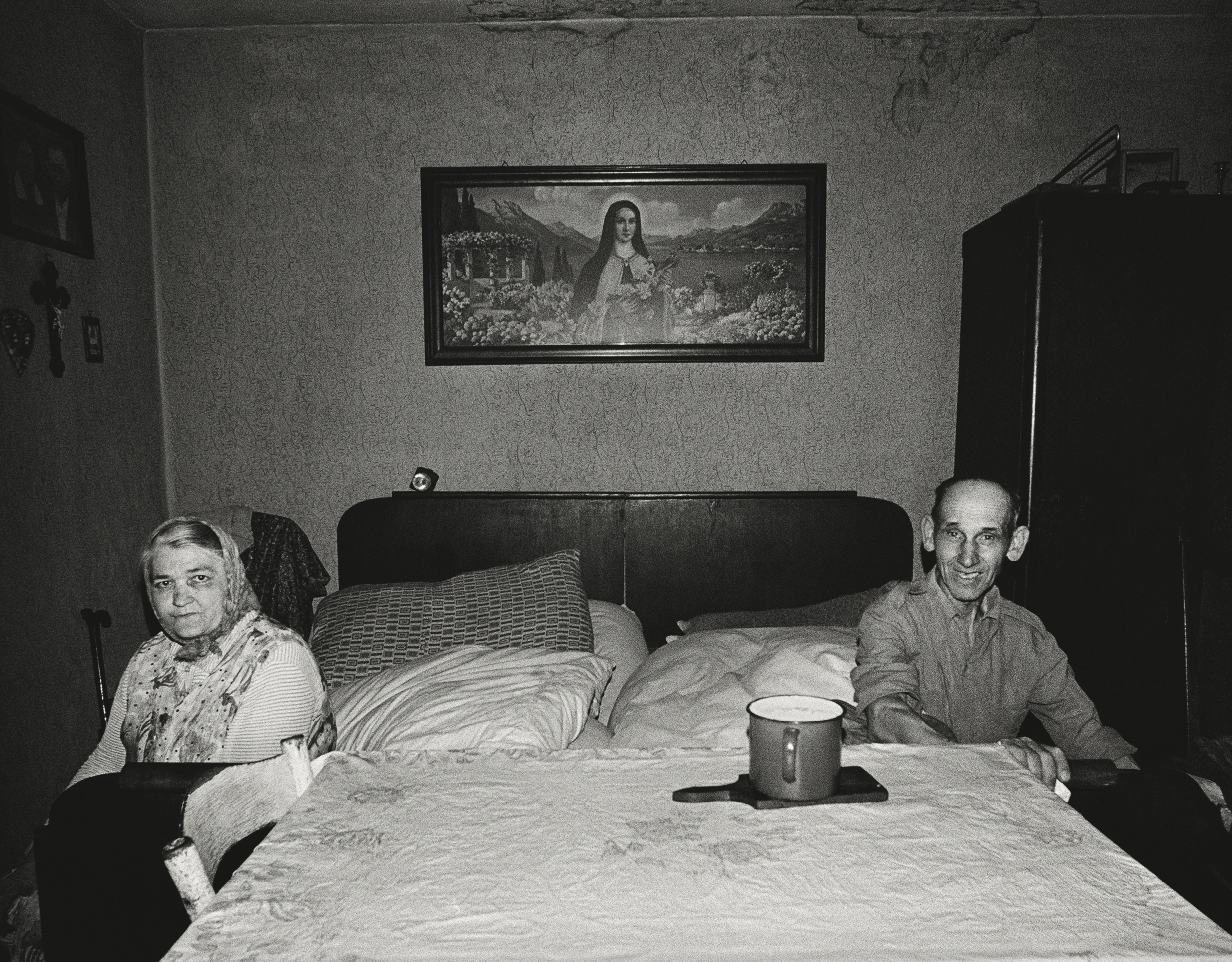
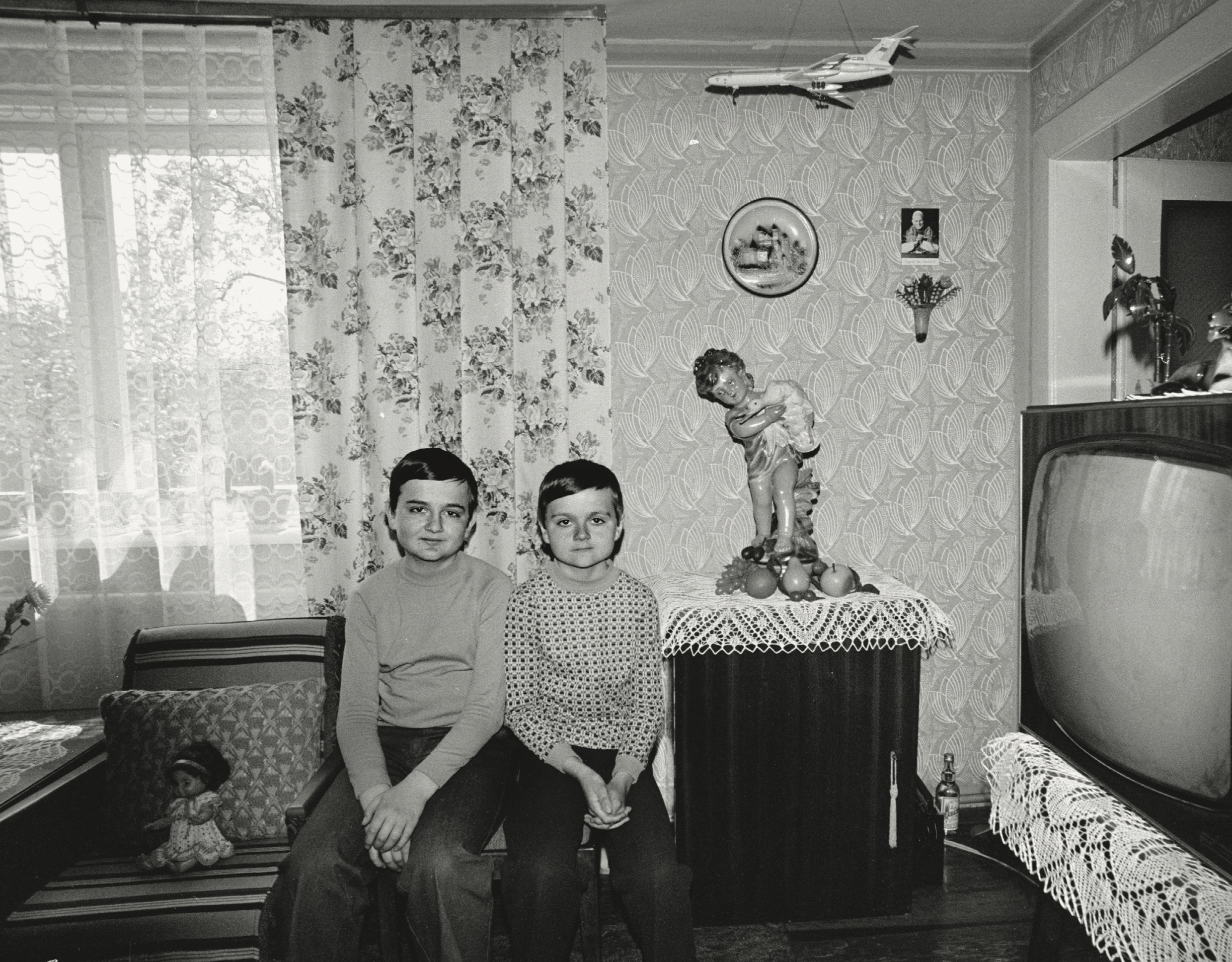
‘Not everyone could have had access to these people,’ says Clare Grafik, Head of Exhibitions at The Photographers’ Gallery in London, where a substantial new exhibition of the work has just opened (through 22 February 2026). ‘They were often in rural areas with a very local life. For her to gain their trust and access their inner most domestic environments, is a real testament to her personality.’ Rydet travelled by bus or relied on friends for lifts, turning up and knocking on doors unannounced. ‘The actual photographing was quite quick,’ Grafik adds on a video call, ‘it was the conversations she would subsequently have with the homeowners, that profoundly affected the way she thought about life and work.’
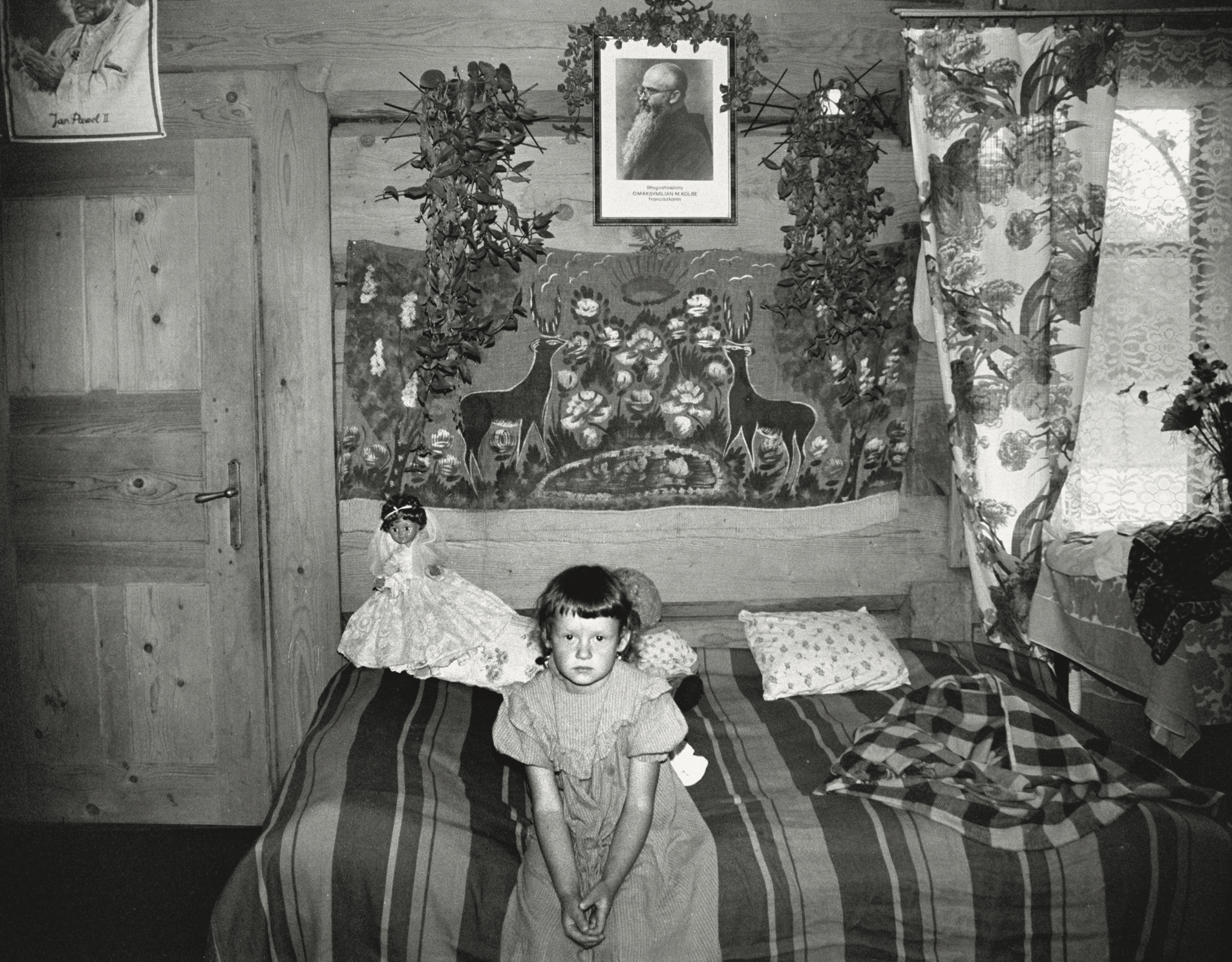
A month earlier I had been invited to the Zofia Rydet Foundation, inside the home of its founders, Zofia AugustyNska-Martyniak and her mother Maria Sokol-AugustyNska (Rydet was AugustyNska-Martyniak’s great grandfather’s sister, though she usually refers to the photographer as her great grandmother). Sat in the family’s living room with Grafik and her co-curator, lecturer and cultural manager Karol Hordziej, the visit mirrored some version of Rydet’s own circumstances, with talk filling much of our allotted time. At one point AugustyNska-Martyniak recalls casually how, when Rydet died, in Gliwice in 1997, most of the family were interested in inheriting her cameras; she and her mother instead became custodians of the archive, and it moved with them from a residence in Rabka, to the Kraków house where we’re introduced. The Foundation was established in 2011.
Hordziej , a school friend of AugustyNska-Martyniak’s (he remembers, unconscious of their gravity at the time, first seeing Rydet’s pictures on the walls of her home), has been working with the Foundation for a number of years, originally helping to digitalise the archive as a way to preserve, celebrate and extend its function. In London however, the focus is on around 100 physical prints Rydet made in her home darkroom, as well as books and personal letters. A documentary, ‘Endlessly Distant Roads’ is also on show; made by the Polish filmmaker Andrzej Różycki in 1989, in it, a young AugustyNska-Martyniak can be seen walking beside Rydet, carrying the photographer’s camera bag.
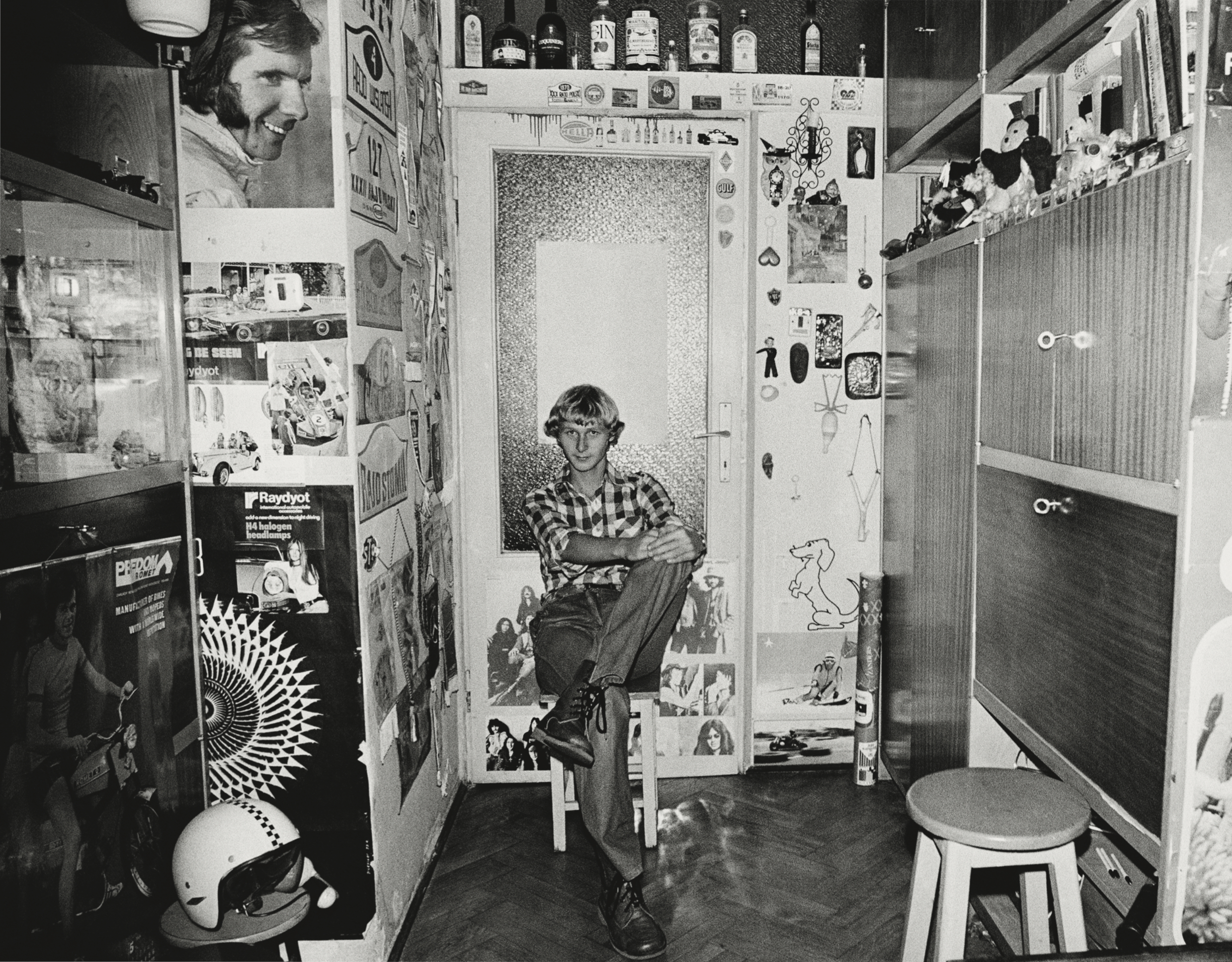
‘The Photographers’ Gallery is interested in what happens to archives, how you deal with archives online, and how they then get translated into physical exhibitions,’ continues Grafik. ‘This project became quite important in terms of thinking about that, because obviously the digitalisation of much of the Sociological Record was the way that that work suddenly became disseminated beyond the boundaries of this sort of niche field, but we’re looking at just a tiny part of it. Ultimately the prints tell you something different about what her intention was for the work, versus scans from negatives.’
‘The project was such an ambitious undertaking, particularly for a photographer in the autumn of her career, to suddenly decide that's what she wanted to do,’ she notes. ‘It brings up all sorts of interesting issues to do with photography, archives, identity; there's many layers to it.’ Rydet predominantly worked in black and white, shooting with a wide angle lens and flash, and the exhibition is largely comprised of the busy domestic spaces of the project’s ‘People in Interiors’ sub-series; lace curtains, religious ephemera, floral tablecloths and posters of pop stars all feature. Elsewhere are works from ‘Women on Doorsteps’, ‘Windows’ and ‘Presence’, the latter highlighting the many images of Pope John Paul II Rydet observed on her travels, (notably elected the same year the Sociological Record commenced, the former Archbishop of Kraków had been the first non-Italian pope in over 400 years).
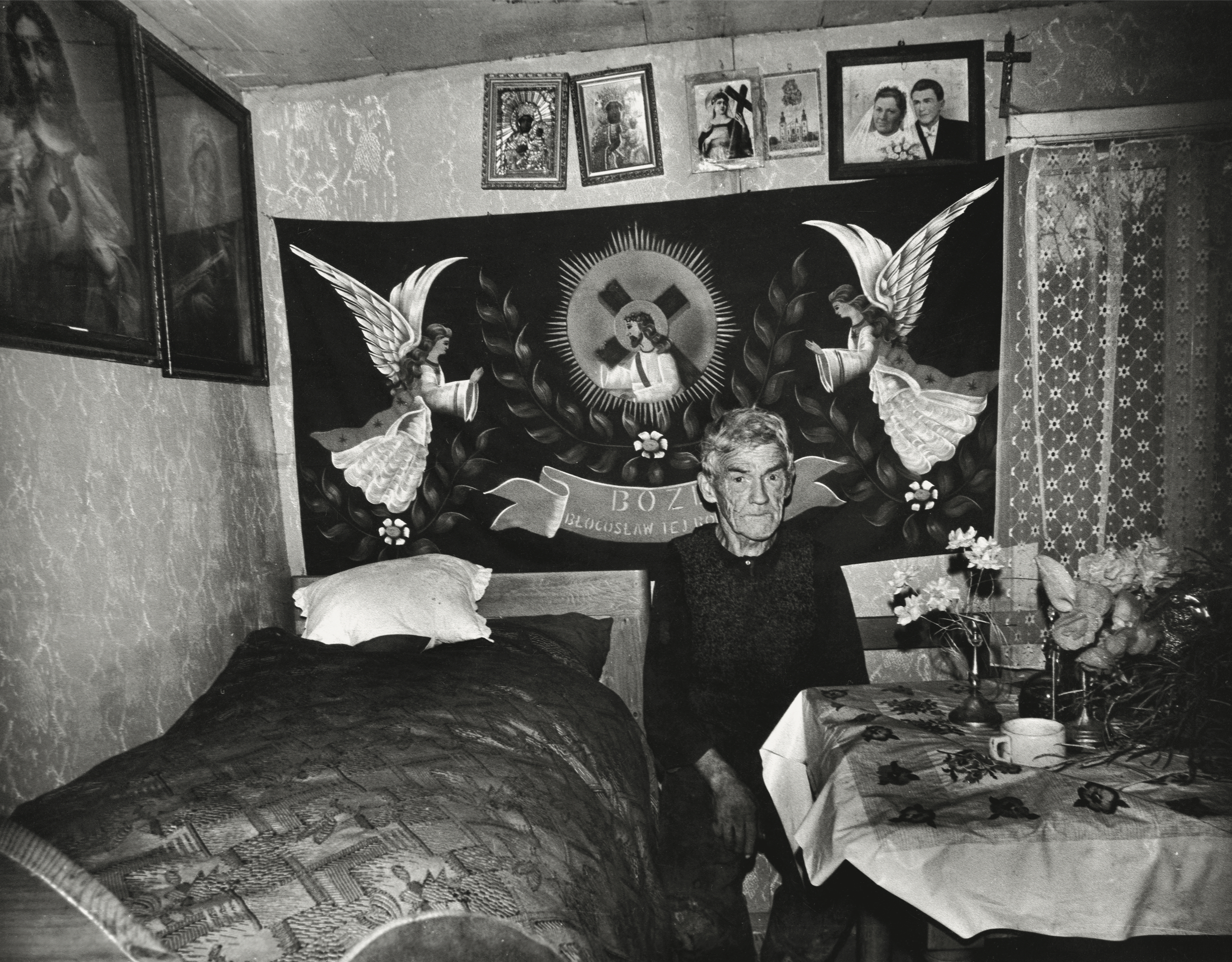
‘She was very free,’ offers Hordziej, who has worked on previous Zofia Rydet exhibitions across Poland and also in Paris. ‘She never married, never had her own family. Maria from the Foundation told me that her male colleagues [as well as joining photo clubs, she became a member of the Union of Polish Art Photographers in 1965] joked that they were kind of jealous, that she could save all her money for traveling and focus on photography. But she also wanted to talk with her photographs, to ordinary people. She really focused on the message – it’s not how it's done but what is it about.’ Attuned to the project’s future significance, during her lifetime Rydet made a point of entering competitions and gifting her work, oftentimes sending it out internationally; some of these respective labels and similar ephemera still exist in a folder at the Foundation.
Receive our daily digest of inspiration, escapism and design stories from around the world direct to your inbox.
Five decades on, against a backdrop of camera phones and social media, reality TV and a contemporary interest in what other people’s homes look like (those before us and currently around us), the exhibition brings Rydet’s work into a new context that speaks to her own curiosity, and her desire to share widely what she saw. ‘She was really photographing people – who wouldn't have been photographed much in their lives, maybe never inside their houses – in their kind of essence, in these interiors that had been put together very organically and often practically,’ shares Grafik. ‘Versus today, where things are photographed all the time. They are so rich as images, each one is a little universe.’
Zofia Rydet: Sociological Record is part of the UK/Poland Season 2025, produced with The Photographers’ Gallery in partnership with the Adam Mickiewicz Institute and the Zofia Rydet Foundation. It is on view at The Photographers’ Gallery until 22 February 2026
Zoe Whitfield is a London-based writer whose work spans contemporary culture, fashion, art and photography. She has written extensively for international titles including Interview, AnOther, i-D, Dazed and CNN Style, among others.